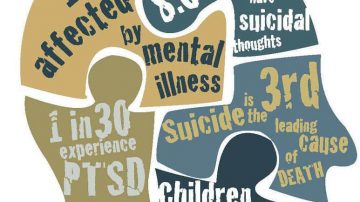Teen mental health issues require a comprehensive approach To Mental Health

Teen mental health issues require a comprehensive approach that involves various stakeholders, including parents and schools.
- Education and awareness: Promote mental health education in schools to increase awareness and understanding of mental health issues among both students and teachers. Educate teens about the signs and symptoms of common mental health disorders, and teach them strategies for coping with stress and managing emotions.
- Destigmatization: Work towards reducing the stigma associated with mental health by promoting open discussions and creating a supportive environment. Encourage teens to speak openly about their experiences and provide platforms for them to share their stories.
- Accessible mental healthcare: Improve access to mental healthcare services by collaborating with healthcare providers and insurance companies to ensure that teens can easily seek professional help. Increase the number of mental health professionals in schools and communities to provide counseling and support.
- School-based interventions: Implement mental health programs and services within schools, such as counseling services, support groups, and stress management programs. Create safe spaces for teens to express their emotions and seek help when needed.
- Peer support programs: Establish peer support programs where trained students can provide support and guidance to their peers who may be struggling with mental health issues. Peer support has been shown to be effective in reducing stigma and increasing help-seeking behaviors.
- Parental involvement: Encourage parents to be actively involved in their teenagers’ lives, fostering open communication and creating a supportive home environment. Educate parents about common mental health issues, warning signs, and available resources.
- Healthy lifestyle promotion: Emphasize the importance of maintaining a healthy lifestyle, including regular exercise, sufficient sleep, balanced nutrition, and stress reduction techniques. Encourage teens to engage in activities they enjoy and to develop healthy coping mechanisms.
- Online resources and helplines: Establish online platforms, apps, or helplines that provide information, resources, and support for teens dealing with mental health issues. Ensure that these resources are easily accessible, confidential, and available 24/7.
- Collaboration with community organizations: Partner with community organizations, such as youth centers, sports clubs, and religious groups, to provide mental health support and promote overall well-being among teens. Engage in community-wide campaigns to raise awareness and reduce the stigma surrounding mental health.
- Research and policy advocacy: Support research efforts to better understand teen mental health issues, their causes, and effective interventions. Advocate for policies that prioritize mental health services and funding for adolescents, ensuring that mental health is integrated into overall healthcare policies.
SOME signs and symptoms of Mental Health Issues include:
-
- Feeling sad or down
- Confused thinking or reduced ability to concentrate
- Excessive fears or worries, or extreme feelings of guilt
- Extreme mood changes of highs and lows
- Withdrawal from friends and activities
- Significant tiredness, low energy or problems sleeping
- Detachment from reality (delusions), paranoia or hallucinations
- Inability to cope with daily problems or stress
- Trouble understanding and relating to situations and to people
- Problems with alcohol or drug use
- Major changes in eating habits
- Sex drive changes
- Excessive anger, hostility or violence
- Suicidal thinking PLEASE, PLEASE SEEK PROFESSIONAL HELP IF YOU FEEL ANY OF THESE SYMPTOMS OR NEED TO TALK ABOUT ANY ISSUES THAT ARE NOT LISTED.
tik4tat research Team, 2024 Your Life–Your Future


